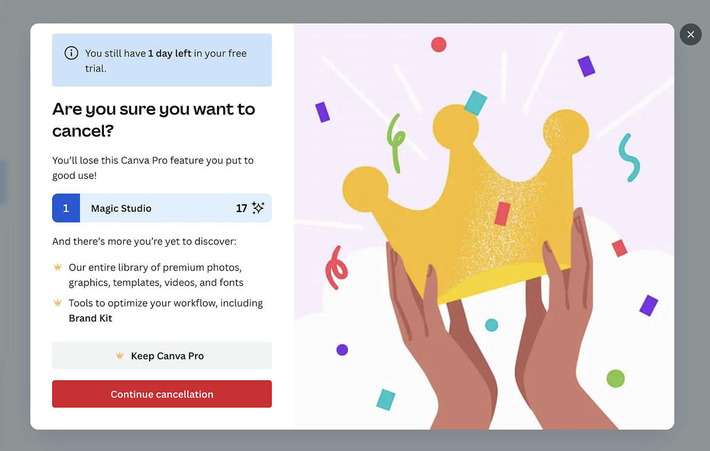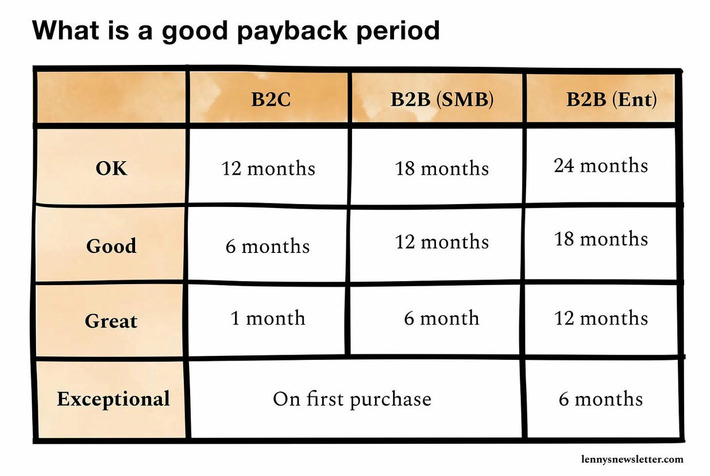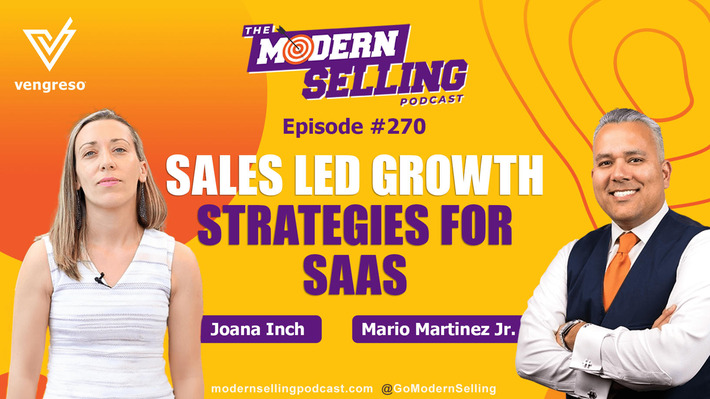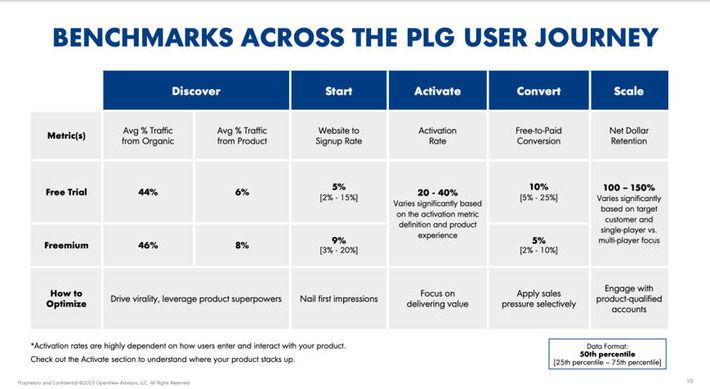Product-led growth (PLG) is a business strategy where the product itself drives customer acquisition, retention, and expansion. PLG focuses on exceptional user experiences to foster user adoption and loyalty, often using freemium or trial models to showcase value. Key characteristics include user-centric design, in-product messaging, identifying product-qualified leads, and leveraging product analytics for continuous improvement. Data plays a crucial role in optimizing user experience, validating new features, personalizing interactions, and measuring success through KPIs. Advantages of PLG include lower customer acquisition costs, higher customer lifetime value, faster time-to-value, better product-market fit, and scalability.
Get Started for FREE
Sign up with Facebook Sign up with X
I don't have a Facebook or a X account


 Your new post is loading... Your new post is loading...
Integrating Product-Led Growth (PLG) and Sales-Led Growth (SLG) strategies can optimize customer acquisition and retention for B2B SaaS companies. PLG leverages the product itself to attract users through self-service models, ideal for small firms. SLG involves a personalized sales approach, suitable for large enterprise customers needing tailored engagement. Combining both strategies allows businesses to cater to diverse customer needs and enhance satisfaction. Success hinges on understanding when to apply each strategy and ensuring seamless integration.
Joemktg's insight:
Action Items for the Growth Marketer: Evaluate your company's customer base to determine the appropriate balance between PLG and SLG. Implement a scoring model to identify high-potential leads for personalized sales efforts. Let Joemktg assist you with your PLG initiatives. For work samples, go to joemktg on Upwork.
Retention is a crucial differentiator for growth, particularly in subscription businesses. B2B subscriptions see monthly churn rates under 5%, while B2C rates are around 5-7%, compared to over 20% for non-subscription sectors. Voluntary churn occurs when customers intentionally cancel, often early or late in the subscription cycle. Effective mitigation includes understanding cancellation reasons, offering easy reactivation options, strategic discounting, pausing subscriptions, and visually communicating the loss of features. Engaging customers and maximizing perceived value are essential to reducing churn.
Joemktg's insight:
Action Items for the Growth Marketer: Focus on understanding and addressing the reasons for voluntary churn, and implement tactics such as easy reactivation options, discounts, and subscription pauses to retain customers. Prioritize customer engagement and feature adoption to enhance perceived value and reduce churn rates. Let Joemktg assist you with your PLG initiatives. For work samples, go to https://www.upwork.com/freelancers/joemktg.
Optimizing Customer Acquisition Cost (CAC) without context can harm companies. Company A with a lower CAC might take longer to recoup costs than Company B with a higher CAC but quicker payback and upside. The traditional CAC ratio is flawed due to its reliance on long-term assumptions, making it unreliable. Focusing on payback periods and growth loops is a more sustainable approach, as it emphasizes faster recoupment of acquisition costs. Companies should prioritize short-term value and robust growth loops over linear funnel metrics.
Joemktg's insight:
Action Items for the Growth Marketer: Focus on optimizing payback periods instead of relying on the CAC ratio. Develop strategies that enhance customer engagement and retention to create sustainable growth loops. Let Joemktg assist you with your PLG initiatives. For work samples, go to https://www.upwork.com/freelancers/joemktg.
From
vengreso
Sales-led growth strategies in SaaS emphasize transitioning from product-led growth by leveraging sales efforts to engage enterprise clients and personalize outreach. Mario Martinez Jr. discusses the challenges and benefits of shifting from a product-led to a sales-led approach, highlighting the importance of adaptability and effective sales tactics. He stresses the need for personalized cold outreach and the significance of balancing sales and marketing efforts. The conversation also covers overcoming marketing and technological debt and securing enterprise clients. Implementing omni-channel marketing strategies and aligning sales with marketing efforts are crucial for sustainable growth.
Joemktg's insight:
Action Items for the Growth Marketer: Evaluate your current growth strategy to determine if a sales-led approach could enhance client engagement and revenue. Focus on personalizing outreach and integrating omni-channel marketing to improve sales effectiveness. Let Joemktg assist you with your PLG initiatives. For work samples, go to https://www.upwork.com/freelancers/joemktg.
Nue has launched a platform that unifies CPQ (Configure, Price, Quote) and billing, aiming to streamline finance operations across various B2B models. The Everything Billing product integrates direct sales, subscription, and usage-based pricing into a single system, allowing for real-time usage quoting, billing, and automated invoice adjustments. It provides ASC606 compliance and integrates seamlessly with systems like Stripe and ERP. Bench Accounting has already adopted the platform, reporting more agile and efficient billing processes. Metronome and Ordway are other companies innovating in the billing space.
Joemktg's insight:
Action Items for the Growth Marketer: Evaluate the potential for integrating a unified CPQ and billing platform to streamline your company's billing processes and enhance operational efficiency. Consider leveraging seamless integration options and real-time analytics to optimize your revenue model. Let Joemktg assist you with your PLG initiatives. For work samples, go to https://www.upwork.com/freelancers/joemktg.
Introducing a freemium model in a B2B SaaS startup can be difficult if the company already has significant revenues and processes tailored to larger customers. Freemium requires seamless onboarding, millions of users, and immediate product value without human assistance. Additionally, it can distract sales and marketing teams and complicate existing processes. Companies like HubSpot and Atlassian added freemium later but with significant adjustments and commitment. Understanding the extensive effort required for a successful transition is crucial.
Joemktg's insight:
Action Items for the Growth Marketer: Evaluate if your startup has the resources and commitment to fully implement a freemium model without disrupting existing processes. Consider the potential distraction to sales and marketing teams and whether your product can provide instant value to users without human assistance. Let Joemktg assist you with your PLG initiatives. For work samples, go to https://www.upwork.com/freelancers/joemktg.
From
martech
A recent report by HockeyStack concludes that demand generation is superior to lead generation, emphasizing brand awareness and education over immediate conversions. Demand generation focuses on creating informed prospects who seek out the brand when ready to purchase, contrasting with lead generation's immediate but often less effective tactics. Data shows demand gen's MQL-to-SQL conversion rate is over 20%, compared to less than 5% for lead gen, with comparable average contract values. Enterprises tend to favor lead gen due to its measurable short-term results, despite demand gen's long-term efficacy.
Joemktg's insight:
Action Items for the Growth Marketer: Shift focus towards demand generation strategies by investing in brand-building and educational content, and measure success through long-term customer engagement metrics. Let Joemktg assist you with your PLG initiatives. For work samples, go to https://www.upwork.com/freelancers/joemktg.
Product-driven SaaS businesses are increasingly leveraging data to drive acquisitions, retention, and engagement by making products accessible and valuable quickly. Key metrics include tracking specific events and milestones, with a focus on understanding customer journeys, marketing attribution, engagement rates, and churn rates. Effective use of UTM codes and analyzing user journeys help in identifying the most impactful marketing channels and customer behavior patterns. Continuous data analysis and refining the user experience are crucial for creating a product that essentially sells itself.
Joemktg's insight:
Action Items for the Growth Marketer: Implement intelligent queries to track and analyze customer journeys and engagement rates, and use this data to optimize marketing strategies and user experience. Let Joemktg assist you with your PLG initiatives. For work samples, go to https://www.upwork.com/freelancers/joemktg.
A product-led referral program drives growth by turning existing users into effective salespeople through incentives, fostering organic growth and trust. Clear objectives, user-friendly processes, and appealing incentives are crucial for successful referral programs. Advanced strategies like audience segmentation and A/B testing can enhance engagement and optimize referral campaigns. Monitoring key metrics such as referral conversion rates and customer retention is essential for continual improvement.
Joemktg's insight:
Action Items for the Growth Marketer: Implement personalized referral programs and leverage A/B testing to fine-tune and maximize referral campaign effectiveness. Let Joemktg assist you with your PLG initiatives. For work samples, go to https://www.upwork.com/freelancers/joemktg.
OpenView Ventures’ 2023 Product Benchmarks Report highlights key metrics for product-led growth (PLG) strategies. Growth has slowed, with only 20% of companies growing at least 75% year-over-year. PLG remains crucial, with leaders growing twice as fast as traditional SaaS companies. Key findings include a decline in organic traffic to 32%, a 5% median conversion rate for freemium products, and a 10% rate for free trials. Effective sales outreach significantly enhances conversion rates.
Joemktg's insight:
Action Items for the Growth Marketer: Focus on diversifying acquisition channels and refining activation metrics to boost conversion rates. Let Joemktg assist you with your PLG initiatives. For work samples, go to https://www.upwork.com/freelancers/joemktg.
How Figma converts users from freemium to premium | by Rosie Hoggmascall | Jun, 2024 | UX Collective
From
uxdesign
Figma has started aggressively prompting users to upgrade from the free tier, using various UI prompts across the platform. Despite these efforts, many users remain unconvinced, primarily due to unclear messaging and complex payment flows. Figma’s growth has been significant, with ARR reaching $425 million in 2022 and $600 million in 2023, and a projected IPO in 2025. Their strategies include contextual upsells and reducing banner blindness through varied messaging, but the conversion rate remains a challenge. A one-question survey helps gather insights into why users choose not to upgrade.
Joemktg's insight:
Action Items for the Growth Marketer: Simplify the payment flow to reduce decision fatigue and ensure premium feature messaging highlights essential benefits to users. Let Joemktg assist you with your PLG initiatives. For work samples, go to https://www.upwork.com/freelancers/joemktg. |
|















Action Items for the Growth Marketer: Evaluate current user engagement and retention strategies to ensure they align with PLG principles. Implement product analytics to gather actionable insights and continuously refine the user experience. Let Joemktg assist you with your PLG initiatives. For work samples, go to joemktg on Upwork.